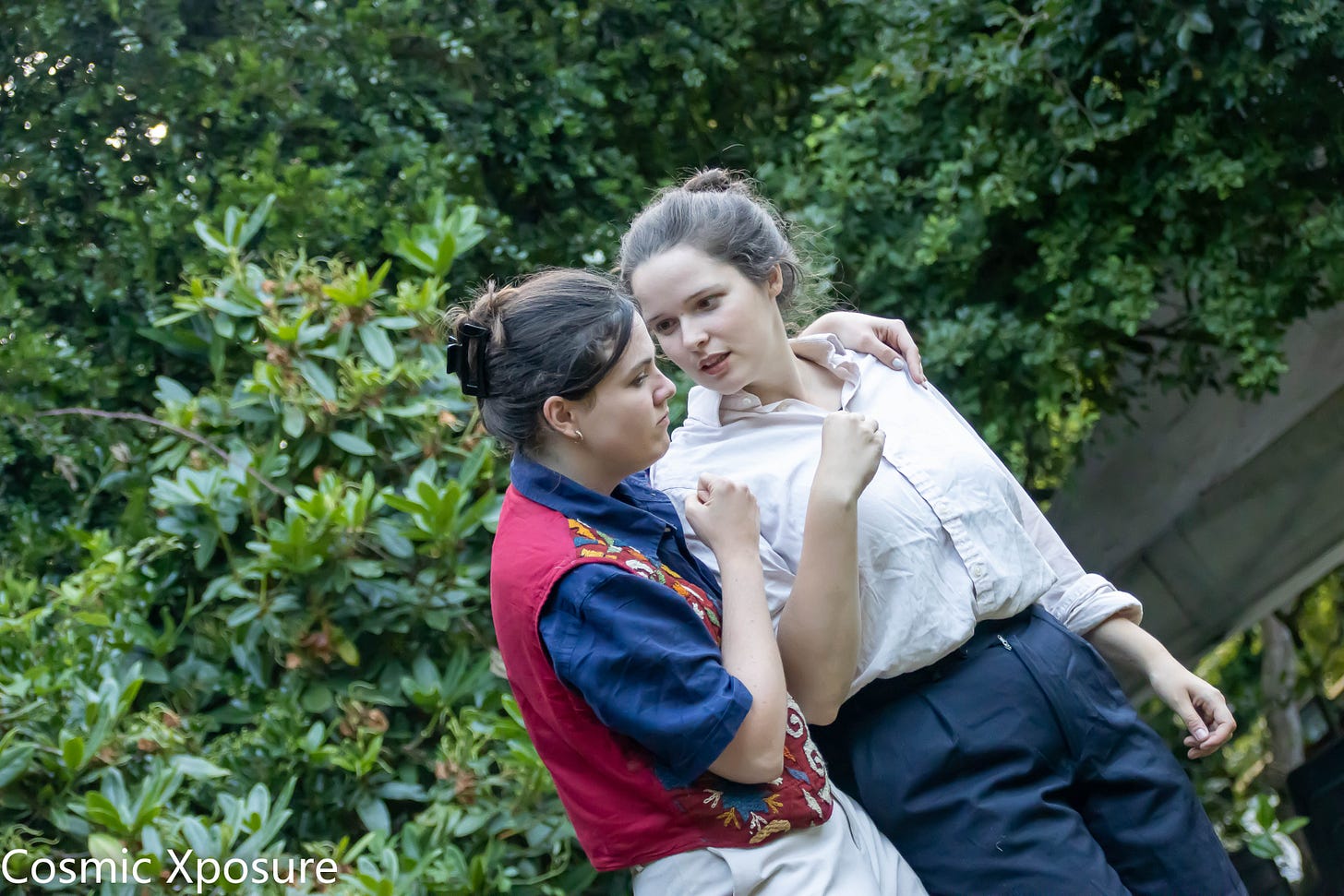Twelfth Night is a comedy about grief. Grief for siblings, grief for unfulfilled desire, bittersweet longing for perfection.
Claustrophobic emotion is cosseted among the turbulent waves of boredom and household politics. The unmusical Orsino longs for the gift of song, innocent Viola flirts (literally) with sexual awakening, and Olivia yearns for freedom beyond the confines of her state. Even Malvolio reveals his deepest desire is a fantasy totally at odds with his outward appearance.
There is an old adage in classic musical theatre that when emotion is too strong for words, music fills the void. Twelfth Night is filled with characters unable, or unwilling, to express or act on their desires: no wonder it is one of the most musical of Shakespeare’s plays.
One of the main casualties of performing Shakespeare productions in modern times are the comic relief characters. Normally based squarely in politics of the day, it is nigh on impossible to make these individuals funny 400 years later. Not so Twelfth Night: Toby Belch, Andrew Aguecheek, Feste and Maria are scheming, hilarious and mischievously evil. They are the true comedic heart of this play.
This adaptation is full of doubling across sex. Olivia must also play her uncle, the actor who portrays Maria is also Duke Orsino. I have never been a fan of changing the nature of the role to suit the actor’s gender, not least because actors cross-dressing has been part of the Shakespeare canon since the beginning.
Women were banned from performing on the Elizabethan stage so boys took the female parts. Shakespeare played with this limitation, and the tongue-in-cheek addition of his heroines frequently dressing as men (so boys playing women pretending to be men) was a dramatic irony that was clearly a popular comedic choice with his audience. Viola, Rosalind, Portia, Jessica, Imogen, Julia... he did it at least six times!
Cast the actor most skilled for the part, and by allowing the story to breathe around that choice you often discover nuances in the text that otherwise would have eluded the conventional choice.
Rosalind (As You Like It) and Portia (The Merchant of Venice) find freedom and agency in their borrowed trousers, and so have we too by doubling our parts regardless of gender. Our Toby Belch/Olivia doubling initially occurred due to pure necessity, yet it surprised us all when this necessity lent much emotional depth and comedy to both characters in the final performance.

We first performed this adaption in August of 2020: the magical fleeting moment during the first summer of the pandemic when we were allowed to briefly taste something resembling normal life. The show had been rehearsed over zoom, performance dates chosen with three week’s notice and we met together in person for the first time 7 days before opening night. We were shocked, moved and thrilled by the audience response. I will never forget the amazing amount of positivity surrounding that run. For the first time in months it felt like we, both audience and troupe, were allowed to say ‘yes we can.’
Twelfth Night will performed at 17:05 on 8 November. Find out more here






